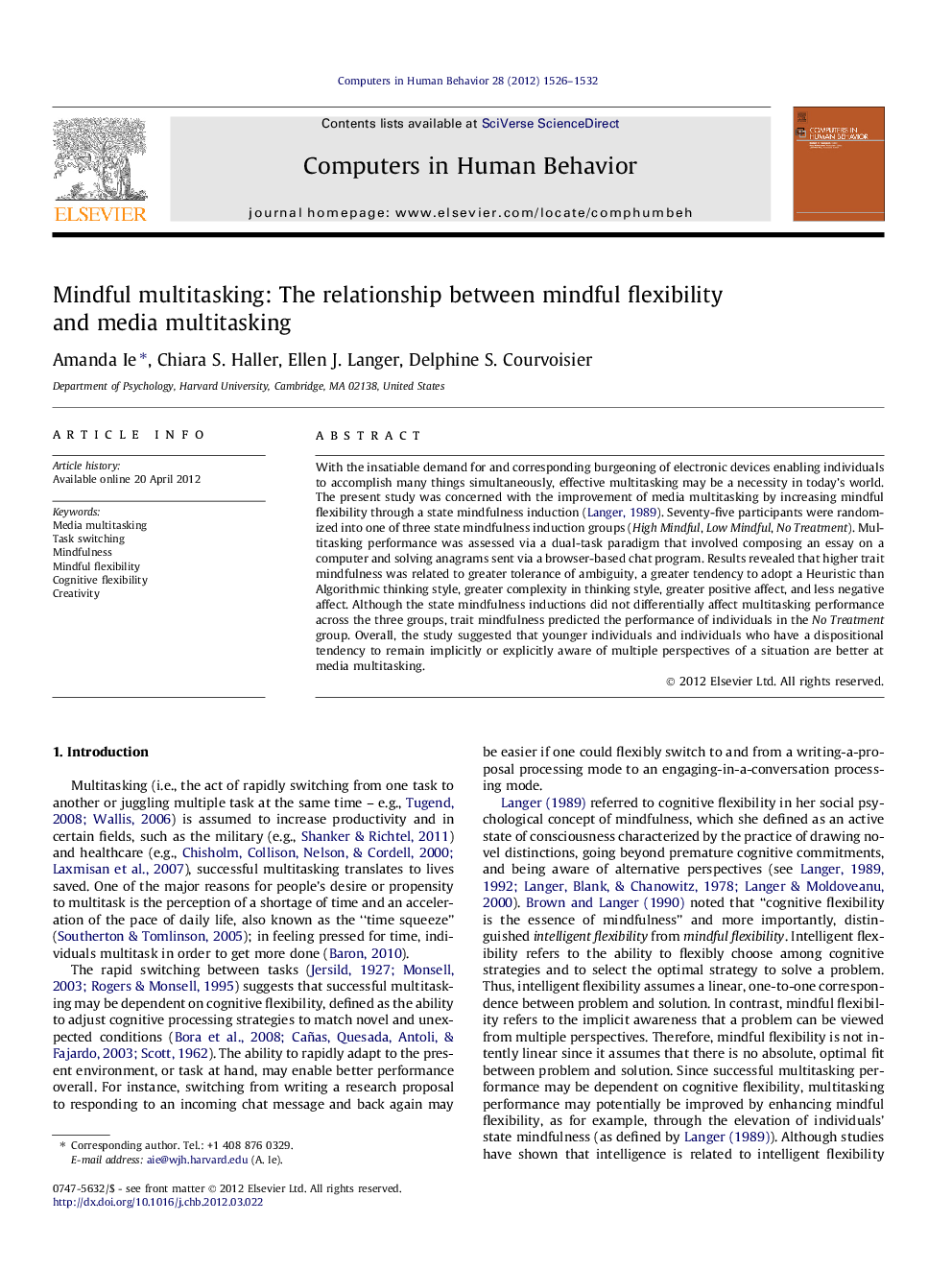| Article ID | Journal | Published Year | Pages | File Type |
|---|---|---|---|---|
| 351415 | Computers in Human Behavior | 2012 | 7 Pages |
With the insatiable demand for and corresponding burgeoning of electronic devices enabling individuals to accomplish many things simultaneously, effective multitasking may be a necessity in today’s world. The present study was concerned with the improvement of media multitasking by increasing mindful flexibility through a state mindfulness induction (Langer, 1989). Seventy-five participants were randomized into one of three state mindfulness induction groups (High Mindful, Low Mindful, No Treatment). Multitasking performance was assessed via a dual-task paradigm that involved composing an essay on a computer and solving anagrams sent via a browser-based chat program. Results revealed that higher trait mindfulness was related to greater tolerance of ambiguity, a greater tendency to adopt a Heuristic than Algorithmic thinking style, greater complexity in thinking style, greater positive affect, and less negative affect. Although the state mindfulness inductions did not differentially affect multitasking performance across the three groups, trait mindfulness predicted the performance of individuals in the No Treatment group. Overall, the study suggested that younger individuals and individuals who have a dispositional tendency to remain implicitly or explicitly aware of multiple perspectives of a situation are better at media multitasking.
► We examine the construct of mindful flexibility. ► We design a state mindfulness induction to boost media multitasking performance. ► Younger and more mindful individuals were better at media multitasking. ► The mindfulness inductions did not differentially affect multitasking performance.
